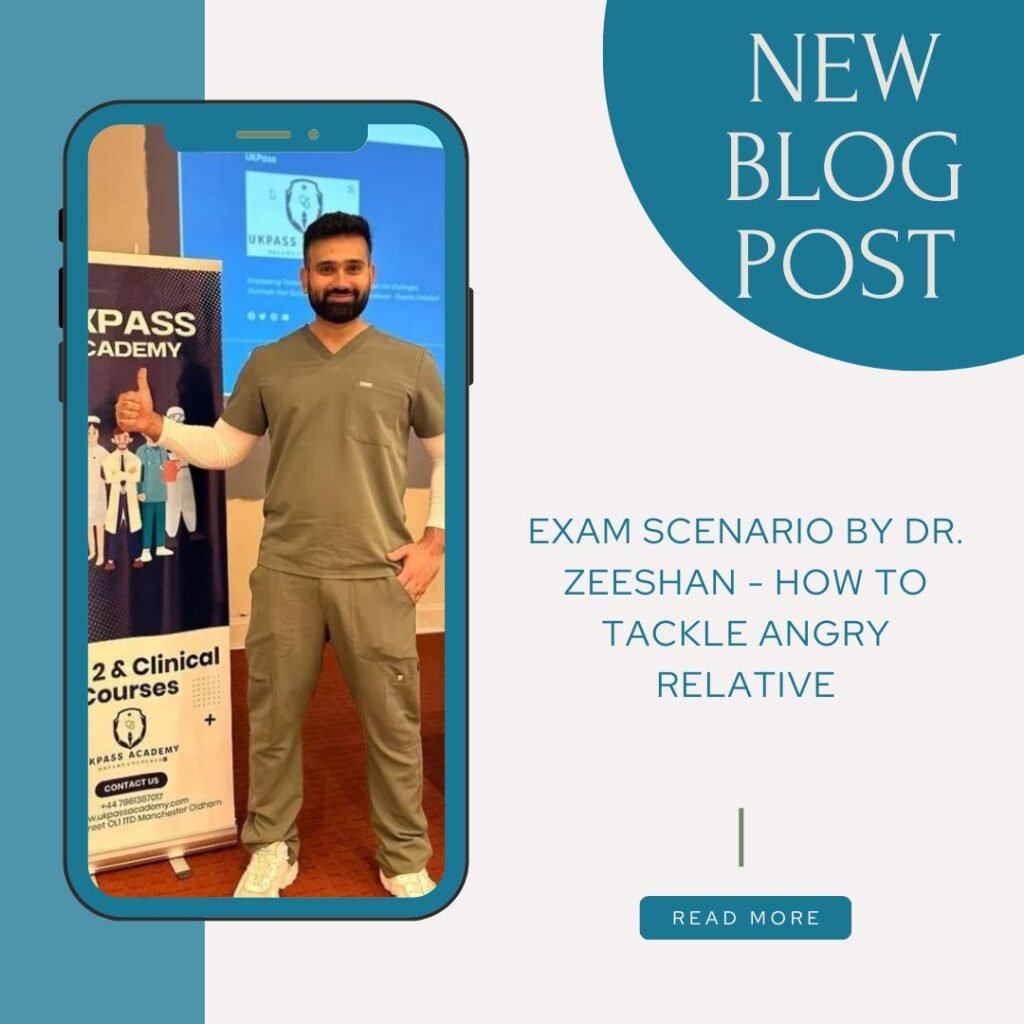As part of your preparation for the PLAB 2 exam, it’s crucial to master the art of handling challenging situations, including dealing with angry relatives. In our PLAB 2 Course, we place a strong emphasis on equipping you with the necessary communication skills to navigate such scenarios effectively. Today, I’ll walk you through a realistic exam scenario and provide valuable insights on how to approach it.
Understanding the Scenario
In this particular scenario, you’ll encounter a daughter who is understandably distressed about her elderly father’s condition. He was admitted to the hospital with pneumonia, but his health deteriorated further due to acquiring a Clostridium difficile (C. diff) infection. The daughter is visibly angry and seeks answers regarding her father’s care.
Effective Communication Strategies
When faced with an angry relative, it’s essential to remain calm, empathetic, and professional. Here are some strategies to help you navigate the situation:
Acknowledge Their Concerns
The first step is to acknowledge the relative’s concerns and validate their feelings. Phrases like “I’m really sorry about what happened to your father” or “I understand your frustration” can go a long way in diffusing the initial tension.
Provide Explanations
Once you’ve acknowledged their concerns, it’s crucial to provide clear and concise explanations about the situation. In the case of this scenario, you would need to explain the difference between a chest infection and pneumonia, the role of antibiotics in treating pneumonia, and how the C. diff infection likely occurred as a result of the antibiotic treatment.
Use Analogies and Metaphors
To help the relative better understand complex medical concepts, consider using analogies or metaphors. For example, you could compare the role of good bacteria in the gut to a protective barrier, and how antibiotics can unintentionally disrupt this balance, allowing harmful bacteria like C. diff to thrive.
Address Their Specific Questions
Pay close attention to the relative’s specific questions and concerns, and address each one directly. This could include:
– Explaining the investigation process for C. diff infections
– Providing an estimated timeline for recovery and potential rehabilitation needs
– Offering information on filing a formal complaint if desired
Demonstrate Empathy and Reassurance
Throughout the conversation, it’s essential to maintain a empathetic and reassuring tone. Acknowledge their frustrations, express regret for the situation, and reassure them that your primary focus is on their loved one’s recovery and well-being.
Importance of Preparation
Scenarios like this one are commonly encountered in the PLAB 2 exam, testing your ability to communicate effectively with patients and their relatives. By practicing such scenarios during our PLAB 2 Course, you’ll gain valuable experience and confidence in handling challenging situations.
Remember, effective communication is not only about providing accurate medical information but also about building trust and rapport with the patient and their loved ones. By following the strategies outlined above, you’ll be better equipped to tackle angry relatives and demonstrate your professionalism and compassion.

